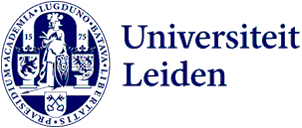
Symposium on technology and privacy should offer new insights
Video conferencing from your sitting room and algorithms on social media that know your interests: new technology is an increasingly integral part of our lives. At the same time there is a growing call to protect our privacy, and this is causing friction, at the University too. In part because of the outcry about the classroom scanners the Executive Board has decided to hold a symposium on 2 February, Technology and Privacy: Trust or Mistrust? We ask Rector Magnificus Hester Bijl five questions about the symposium:
Why is the University holding this symposium?
‘No one will have failed to notice the huge outcry about our classroom scanners. These scanners, a system that counts the number of people in a room, also because of the coronavirus measures, have since been switched off. The run-up to that decision caused me to change my perspective on the issue. At first, I thought: “We as Executive Board have to explain our intentions better and how exactly we can use these classroom scanners.” But now I understand people’s concerns more. I can see how important it is to discuss this with one another and to make use of the expertise and experiences of experts.
‘You can view the tension between modern technology and privacy in many different ways and we have researchers at the University who have something meaningful to say about this on the basis of their research. We have legal experts, researchers at the psychology and political science departments, cyber-security experts, humanities researchers and many more. I want to bring these different perspectives together and share them with our university community.’

Is it a symposium specifically for people who deal with new technology and privacy?
‘No, definitely not. The symposium is for anyone within our own community who wants to find out more about the topic. All our students and staff, lecturers and researchers are welcome to listen and take part. It also fits well with our new strategic plan: interdisciplinary and relevant to society. I’m really looking forward to it.’
The symposium will be about trust and mistrust of this new technology. Will we ever really trust technology in the way that we trust people?
‘I think it will continue to depend on the individual. There will always be people who trust technology more than others do. I think that the big question is: “How do we together ensure that we reap the benefits of certain new technologies. But in a way that we create trust. How do we do that?” If you ask me that aspect of trust should play a leading role in the development and use of technology.’
Trust and mistrust played an important role in the discussion on the classroom scanners. What is the current status of that process?
‘Following all the commotion we as Executive Board decided to switch the scanners off for the time being. What is known as a penetration test will be held soon, a test in which ethical hackers try to break into the system, and students will also be given the opportunity to take part in a similar test. We want to know for sure that the system is safe before we take a new decision on the scanners.’
What do you hope the symposium participants will take home with them?
‘First I hope that they see that the University takes the subject very seriously indeed. We are working hard on it. And it would also be nice if researchers bring one another to new insights and that the interdisciplinary character of the symposium appeals to lots of different people and yields a result, for instance in their studies or work for the University. And for myself I hope that the symposium will offer insights that we as Executive Board can use to inform our policies.’
Text: Tim Senden
